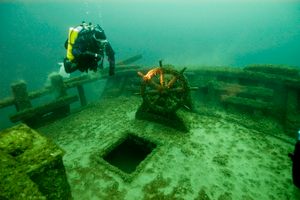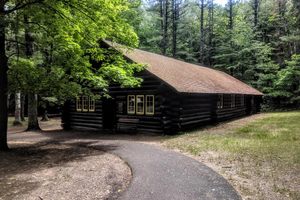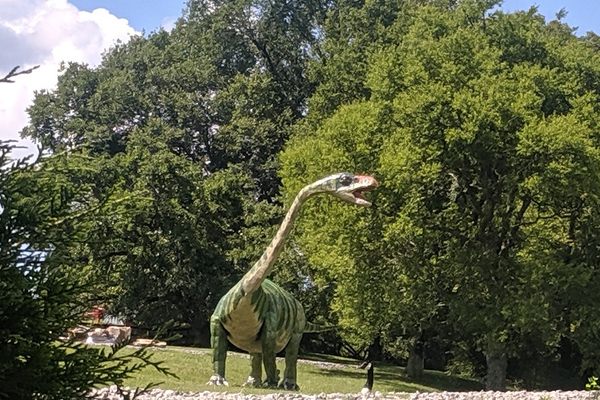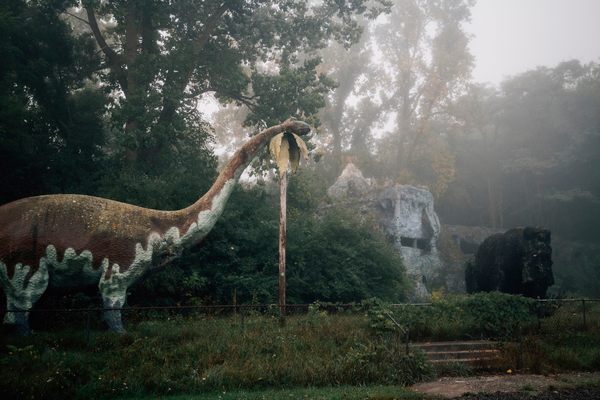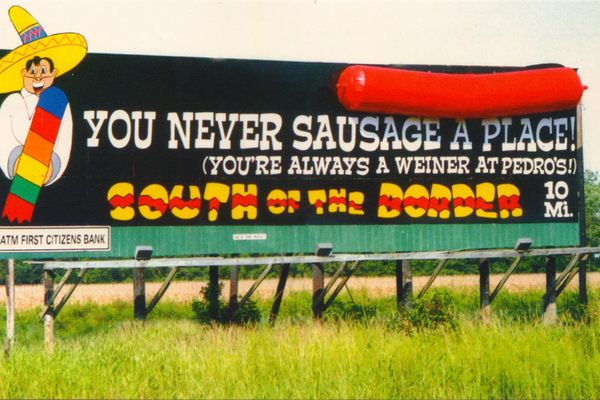About
Just as mammals gained primacy only after the extinction of dinosaurs, Dinosaur Park was born in the economic upheaval of the Great Depression.
Paul Domke was an ex-Navy/ex-farmer/jack-of-all-trades who had moved to Detroit to pursue his artistic interests by working as a church decorator. By 1930, his business had evaporated. He and his wife Lora returned to their native northeast Michigan in search of a new beginning.
There, near the shores of Lake Huron, they bought a piece of swampland, where they built their home, three rental cottages, and a gas station. Supported by the income from the cottages and gas station, Paul began work on his passion project: building dinosaur statues.
Domke had developed an interest in natural history during his time in the Navy, and visited both the Smithsonian in D.C. and the Field Museum in Chicago to observe and sketch the skeletal structures of various prehistoric animals. In 1935, he set out to transform those sketches into life-sized replicas, using his 40 acres of cedar swamp — which he’d chosen specifically because he thought it looked like a place where dinosaurs would live — as the setting for his long-extinct menagerie. Working for over three decades, he the built 25 exhibits that formed Paul Domke’s Garden and Prehistoric Zoo.
The exhibits included individual dinosaurs (including a pteranodon mid-flight) and active scenes of survival-of-the-fittest carnage, as well as Ice Age scenes of early humans hunting mastodons and bashing things with big rocks. In his quest for durable statues that could feature the detailed musculature he brought to his creations, Domke developed a “secret formula” concrete mixture he called “cement plastics.” His impressively contoured (if questionably accurate) statues have weathered the harsh Great Lakes winters for over half a century.
Adding an additional layer of intrigue, visitors to Domke’s sculpture garden are greeted at the entrance by a gigantic statue of Jesus Christ holding the world in his left hand. However, be not chagrined: it seems that Domke’s religion peacefully coexisted with his interest in paleontology. The centerpiece of the garden, in fact, is a huge concrete apatosaurus whose hollow interior includes a heart that frames a painting of Jesus bearing the inscription, “The Greatest Heart of All.” Domke, a devout fundamentalist Lutheran, nevertheless believed in evolution — as a divinely guided process, seeing the “week” of creation as a period that lasted millions of years.
Domke sold the property in 1960, since which time it has continued to operate as Dinosaur Gardens Prehistoric Zoo. It, of course, continues to not be a zoo. But it remains Domke’s vision of a zoo, populated by dinosaurs being guided through evolution by Christ’s subtle and iterative manipulation of DNA.
Related Tags
Community Contributors
Added By
Published
November 16, 2015





















